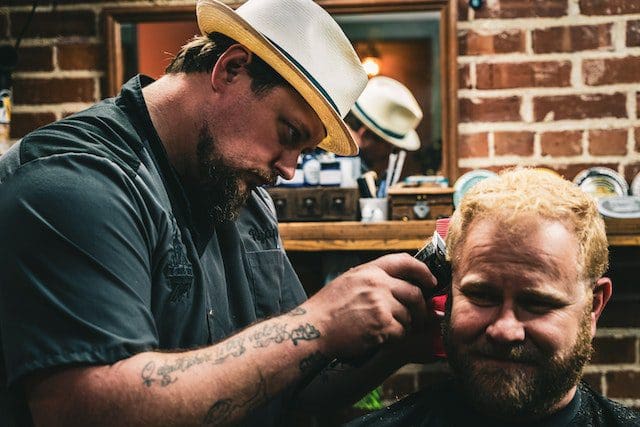No one wants to look into the mirror and find they are losing their hair. There are numerous reasons why hair loss becomes a significant issue for men after turning 40. Numerous factors lead to middle-aged hair loss, but you can take comfort in knowing multiple treatments can help. The guide below covers the leading causes and treatments for hair loss after you turn 40.
What Causes Hair Loss in Your 40s?
According to studies, more than half of men aged 40 to 49 experience at least moderate hair loss. Hair stops growing from particular follicles, leaving your hair thinner than it once was. The hairline could begin receding, and there might be noticeable discoloration.
Hereditary hair loss is a genetic trait. Your genes could reduce follicle growth faster and prevent hair growth completely. The first signs of pattern baldness are usually noticed earlier but do appear in some men during their 40s.
Health Problems and Conditions
Hair loss is among the prevalent side effects of chemotherapy. Many patients begin growing hair back several weeks or months after chemotherapy.
Other illnesses and health conditions could lead to hair loss. Going through an operation, childbirth, or having a significantly stressful event in your life are all possible triggers.
Hair Styling
Remember that tight braids can strain your hair and scalp, and frequent dye jobs can negatively affect your hair follicles. We may encounter sensitivities around our scalp that were never an issue during our 20s or 30s.
Adjust How You Care For Your Hair
Here are some quick tips recommended by experts:
- Try to avoid tight braids
- Don’t frequently dye your hair
- Set hot irons and blow-dryers to lower levels
- Try to use healthy haircare products, such as those without alcohol
How iron can help your hair stay healthy
Iron transports oxygen throughout your body, which boosts cell repair and growth. It’s an essential mineral to promote hair growth, but it’s not uncommon to experience an iron deficiency in your 40s.
Diet adjustments, oral supplementation, and iron infusion are potential ways of replenishing this mineral’s levels.
IV drips are the most efficient since they can boost iron quantity quickly. Thanks to mobile services, you can get an intravenous treatment at your home or any other convenient location. While iron infusions have some side effects, the downsides of using iron infusions are usually minor and subside quickly.
Consider Hair Transplant Surgery
Consult with a dermatologist to discuss medications or injections that promote hair growth. Hair transplant surgery could be a long-term solution if neither option is appealing. Make sure to discuss this solution with a medical professional first.
Final Thoughts
Hair loss can disrupt your confidence and how you feel about yourself. If you notice you have suddenly started losing hair in your 40s, it’s best to act as soon as possible. Begin by establishing the reason behind hair loss. Once you know the cause of the issue, you can better form an effective attack plan to reclaim your confidence!
About the Author/s
The New Jersey Digest is a new jersey magazine that has chronicled daily life in the Garden State for over 10 years.
